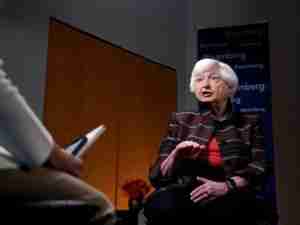Big gaps remain between US and Japan in trade talks
By: Reuters | Apr 14 2014 at 08:04 AM | International Trade
Big gaps remain between the United States and Japan after two days of talks on a bilateral trade deal that is vital for a broader regional pact, negotiators on both sides said.
Japan and the United States are seeking a two-way trade deal, regarded as a cornerstone of the U.S.-led Trans-Pacific Partnership (TPP), before U.S. President Barack Obama travels to Japan for an April 24-25 state visit.
The TPP, a 12-nation grouping that would stretch from Asia to Latin America, is central to Obama's policy of expanding the U.S. presence in Asia. Japanese Prime Minister Shinzo Abe has touted it as a main element of his economic growth strategy.
"Our teams arrived expecting that the talks will be tough. And our expectations have been met," U.S. Trade Representative Michael Froman told reporters after talks with Japanese Economics Minister Akira Amari.
"We made some progress over the last two days, but there are still considerable differences on our positions in key issues."
Amari said progress had been made in some areas but significant differences persisted and it was not possible to say whether a basic deal could be reached by the summit.
"The U.S.-Japan summit is one important juncture, but it's not a pre-set goal. We will continue the talks. It's the content of negotiations that's important," he told reporters.
U.S. Republican Charles Boustany, a member of the House Ways and Means Committee which has jurisdiction over trade, said it was now up to one-on-one talks between Obama and Abe to break the impasse.
"I am very hopeful that President Obama's visit to Japan at the end of April will result in progress on market access talks with Japan," he told a Washington International Trade Association event.
Without substantive progress toward a deal in time for Obama's trip, the summit with Abe could end up more symbolism than substance, experts said.
The United States wants Japan to open its rice, beef and pork, dairy and sugar sectors - politically powerful sectors that Japan's Prime Minister Shinzo Abe has vowed to defend.
"We understand the challenges. These negotiations relate to fundamental reforms and the market opening of sectors in Japan that have traditionally been closed," Froman said. "These (TPP) opportunities are aligned with Japan's own economic reform agenda."
A Japanese government official told Reuters this week that lowering farm tariffs was possible but scrapping them entirely - the goal of the TPP framework - was not.
Japan also wants a timetable on U.S. promises to drop tariffs of 2.5 percent on imports of passenger cars and 25 percent on light trucks.
Beef Tariff Cut?
The Nikkei business daily reported earlier that Japan was considering slashing tariffs on U.S. beef imports to less than 10 percent from the current 38.5 percent.
That proposed cut would be much deeper than one negotiated with Australia, which on Monday agreed to a trade deal with Tokyo including a halving of the levy on frozen beef to 19.5 percent.
But trade experts said a cut in one tariff would not be enough to win the support of the U.S. agriculture lobby, which has a lot of influence in Congress.
"On its own that would not be sufficient, even tariff elimination just on beef wouldn't be sufficient to get the support of the agriculture sector," trade consultant Craig Thorn said when asked about the Nikkei report.
"They .. are now seeing that TPP outcome in the broader context, in the context of what it means for (U.S.-Europe trade talks), what it means for future TPP expansion, what it means for future WTO negotiations, that's all got to be factored in."
A spokesman for Australia's foreign affairs and trade department said if Japan gave another country a better deal, a review would automatically be triggered with the aim of giving Australia equal market access.
As part of its proposal, Japan is also looking to impose restrictions if U.S. beef imports soar as a result of a lowering of the levy, the Nikkei said, without citing any sources.
Some experts say U.S. negotiators are at a disadvantage because the White House does not have authority to fast track agreements through Congress, given opposition by senior Democrats to a bill laying the groundwork for a yes-or-no vote by lawmakers.
Senate Finance Committee chairman Ron Wyden, a Democrat, said this week he would work in coming weeks on amendments to a proposal currently before Congress to address concerns about a lack of transparency in the TPP and other negotiations.
Boustany said it was too late to start over on a fast-track bill given TPP talks were at a critical stage, but said Republicans would "possibly" be open to some changes. (Reuters)








